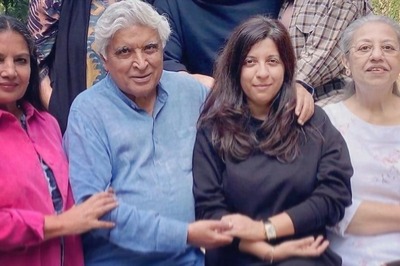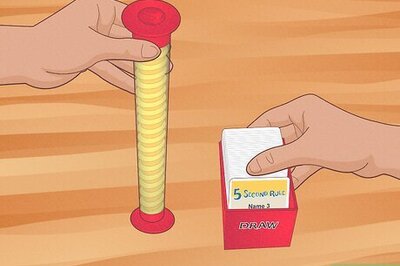
views
Perinatal care focuses on the new mother, her triumphs and struggles and the newborn infant. However, the journey is challenging for a new father since he has the responsibility to create a suitable environment for the mother at home. He also supports the mother during maternity blues.
The husband is the most influential figure to the wife and it is believed that fathers can contribute to maternal breastfeeding confidence. They can influence decisions regarding duration and weaning and without father’s support, mothers are likely to breastfeed for a shorter duration.
Dr Banoth Balram, Pediatrician, Medela India LC Club writes about the benefits of the Kangaroo care method.
Fathers taking the plunge
Fathers today are exploring new styles of parenting to develop a deeper bond with their baby. They have adopted practices that their forefathers were unable to engage in. They are, for instance, actively leveraging the online space to educate themselves about parenting and newborn care such as about the health benefits of breastfeeding. About 71% of millennial parents pay heed to advise from parenting blogs, parenting websites, forums, and social networks.
Besides taking care of the mother, fathers are also partaking a larger role in building a bond with their baby. While the biological role is of the mother and babies builds a greater connect with the mothers, fathers can also participate in the bonding activity with their babies. For instance, it is a lesser known fact that fathers can indulge in skin-to-skin or kangaroo care just like mothers.
Advantage of skin-to-skin for the baby
According to the American Academy of Pediatrics, skin-to-skin or kangaroo contact improves infant’s respiratory patterns and increases the rate of infant’s ideal weight gain. This is especially important when the baby is premature as they need the warmth of the parent’s body to gain strength. Studies by NCBI show that kangaroo father care has a significant effect on the baby’s heart rate, in stabilizing the blood-oxygen level and body temperature. It is as safe and effective as kangaroo mother care. Moreover, it reduces the baby’s crying as it is a sign of comfort and enhances her growth and development. The direct connection with the father’s skin lowers the stress levels (cortisol) of the baby after a mere 20 minutes of being held. Holding the baby on father’s skin increases the development of essential neural pathway which accelerates brain maturation. It also allows for the baby to fall asleep easily.
Kangaroo contact boosts paternal confidence
It is crucial to emphasize and encourage the significance of being a father can begin at childbirth. Skin-to-skin thereby helps strengthen paternal confidence towards child care and creates an emotional relationship at a very nascent stage. This first instance of intimate contact creates self-awareness for the father, decreases paternal anxiety and increases feelings of protectiveness. Touching, massaging, hugging and responding effectively to the baby’s crying helps the father to appropriately interpret changes to a baby’s appearance and behaviour.
While kangaroo mother care and breastfeeding are immediate practices postpartum, skin-to-skin with father can be initiated as early as during postpartum hospitalization. Encouraging kangaroo father care amongst the Indian parents can be an effective healthcare strategy that helps fathers build self-confidence, build physiological health of babies and facilitates an easy transition into fatherhood.



















Comments
0 comment